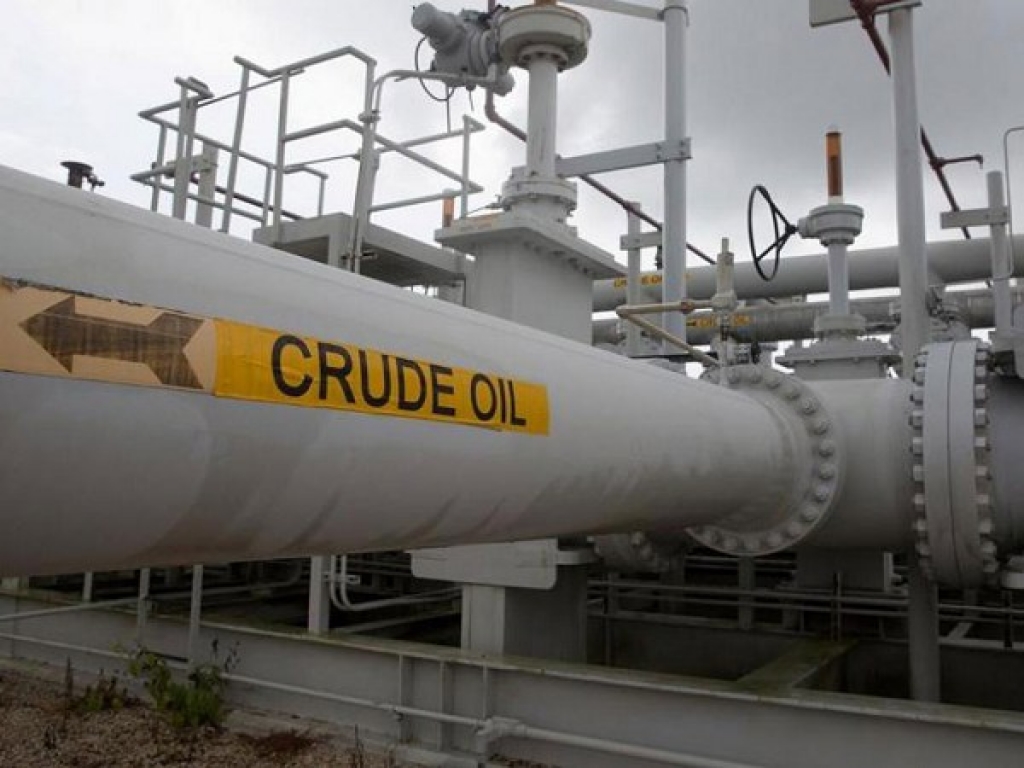 LAUNCESTON, AUSTRALIA: Asia's oil refiners are increasingly finding themselves trapped between the rock of OPEC's production cuts and the hard place of US President Donald Trump's sanctions against Iran and Venezuela.
LAUNCESTON, AUSTRALIA: Asia's oil refiners are increasingly finding themselves trapped between the rock of OPEC's production cuts and the hard place of US President Donald Trump's sanctions against Iran and Venezuela.
While the region, which accounts for about half of the world's refining capacity, is still able to source oil, it's becoming harder to get hold of the grades of crude that many Asian refiners prefer.
This is because the output restrictions agreed by the Organization of the Petroleum Exporting Countries (OPEC) and its allies, which include Russia, have resulted in mainly heavy and medium sour crude grades being cut.
Add to this the sanctions imposed by the United States on Venezuela, which produces heavy sour crude, and on Iran, another producer of mainly heavy and medium sour grades, and Asia's refiners are facing operational challenges.
Many of the region's refineries are new and are optimised to process heavy and sour crudes.
They were designed this way to take advantage of the historical discount these grades were priced at relative to light, sweet crudes, such as global benchmarks Brent and West Texas Intermediate (WTI), and oil from West African producers such as Nigeria and Angola.
The recent developments in the crude oil market have all but eliminated the discount enjoyed by heavy crudes, and in some cases, physical cargoes of some heavy grades have traded at premiums to light crudes.
The Brent-Dubai exchange for swaps, which charts the premium of Brent over the Middle Eastern benchmark Dubai, narrowed to 36 cents per barrel on Tuesday, the weakest in almost nine years.
Looking at specific grades of crude shows that a grade such as Iraq's Basra Heavy has been increasing in price relative to a light crude such as Nigeria's Bonny Light.
Basra Heavy, as assessed by Argus Media, was at $60.17 a barrel on Tuesday, while Bonny Light was at $64.38.
This represents a premium of $4.21 a barrel for the light crude, but this is down from a gap of $6.18 as recently as early October last year, and $7.26 at the start of 2018.
ASIA'S HEAVY DISTRESS
The flows of crude oil to Asia also help illustrate the dilemma facing the region's refiners.
Asia imported about 669,000 barrels per day (bpd) of Venezuelan crude in January, according to vessel-tracking and port data compiled by Refinitiv, with eight of the 13 cargoes going to China, four to India and one to Malaysia.
Given the six- to eight-week sailing time between the Latin American country and destinations in Asia, it's likely that the pinch of US sanctions will only be felt in April, given that all February cargoes and most of March's are already en route.
But Asia is facing the loss of almost 700,000 bpd of heavy crude from Venezuela by April, coincidentally the same month that Trump's waivers on Iranian crude exports are due to expire.
The US administration reimposed sanctions against the Islamic Republic's oil exports in November in a bid to ramp up pressure against Tehran's nuclear programme, but extended waivers to eight major buyers of Iranian crude, most of them in Asia.
Refinitiv data show that buyers have taken advantage of the waivers, with Iran's exports rising to a three-month high of 950,000 bpd in January, of which 700,000 bpd headed east.
In theory, these exports should drop to zero when the waivers expire in early May, barring a further extension by the Trump administration, or less likely, some kind of agreement between the United States and Iran.
In the lead up to the November granting of waivers by the United States, oil prices had jumped to a four-year high as the market anticipated the loss of Iranian barrels.
However, the granting of the waivers contributed to a sharp reversal in crude prices, with Brent dropping to a 14-month low by late November.
In turn, this spurred OPEC and its allies to impose new output restrictions at a meeting in early December, with these cuts to take effect from January.
Given that much of the heavy lifting of the output restrictions will fall on OPEC's top producer Saudi Arabia, and fellow Middle East producers Kuwait and the United Arab Emirates, it's likely that the barrels lost will be heavy, or medium-heavy crudes.
With the actual loss of Venezuelan and some Middle Eastern crude, and the potential loss of Iranian barrels, the dilemma for Asian refiners becomes more acute.
Do they bid ever-increasing amounts for what heavy oil remains in the market, do they lower run rates, or do they try and switch to using more light crude?
None of these options are appealing, and all of them are likely to result in higher costs for refined products, particularly the middle distillates such as diesel and jet fuel that are produced in greater quantities from heavy crudes.


























Comments
Comments are closed.